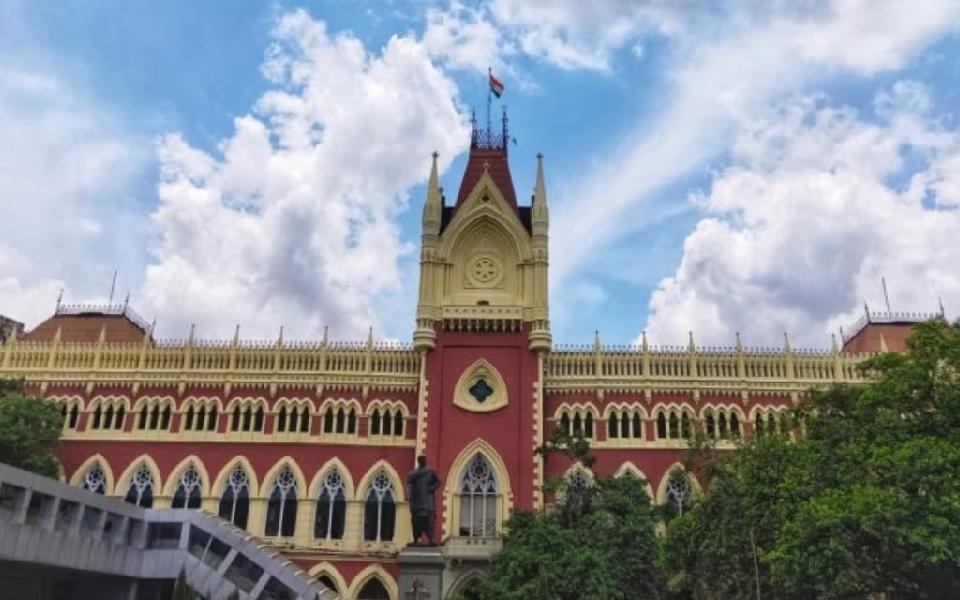Kolkata, Jun 16: The Calcutta High Court has directed the West Bengal government to ensure one per cent reservation for transgender persons in all public employment in the state.
Noting that the state government adopted a policy of equal treatment in employment to transgenders, the court said the reservation has, however, not yet been made for them.
Justice Rajasekhar Mantha directed the chief secretary of the West Bengal government to ensure one per cent reservation for transgenders in all public employment.
The high court order was passed on a petition by a transgender person, who succeeded in the Teachers' Eligibility Test (TET) 2014 and also in the TET 2022, but was not called for counseling or interview.
In the order passed on Friday, Justice Mantha noted that the Supreme Court had declared in a 2014 case that ‘hijras’ and eunuchs, apart from binary genders, be treated as "third gender" for the purpose of safeguarding their rights under Part III of the Constitution.
The apex court had also upheld transgender persons’ right to decide their self-identified gender, and directed the Centre and state governments to grant legal recognition of their gender identity such as male, female or as third gender.
Justice Mantha also noted that the top court had directed the Centre and the state governments to take steps to treat them as socially and educationally backward classes of citizens, and “extend all kinds of reservation in cases of admission in educational institutions and for public appointments”.
The West Bengal chief secretary had informed the high court that the state’s Department of Women and Child Development and Social Welfare on November 30, 2022, made a notification that transgender persons were entitled to equal opportunity of employment without any discrimination whatsoever.
The court said it is clear from the notification that the state itself had adopted a policy of equal treatment in employment to transgender persons.
Justice Mantha said the reservation has, however, not yet been made in the state for transgender persons in accordance with the Supreme Court order.
He also directed the secretary of the West Bengal Board of Primary Education to arrange for interview and counseling of the petitioner as a special case.
Let the Truth be known. If you read VB and like VB, please be a VB Supporter and Help us deliver the Truth to one and all.
Panaji (PTI): As part of a crackdown against tourist establishments violating laws and safety norms in the aftermath of the Arpora fire tragedy, Goa authorities on Saturday sealed a renowned club at Vagator and revoked the fire department NOC of another club.
Cafe CO2 Goa, located on a cliff overlooking the Arabian Sea at Vagator beach in North Goa, was sealed. The move came two days after Goya Club, also in Vagator, was shut down for alleged violations of rules.
Elsewhere, campaigning for local body polls, AAP leader Arvind Kejriwal said the fire incident at Birch by Romeo Lane nightclub at Arpora, which claimed 25 lives on December 6, happened because the BJP government in the state was corrupt.
An inspection of Cafe CO2 Goa by a state government-appointed team revealed that the establishment, with a seating capacity of 250, did not possess a no-objection certificate (NOC) of the Fire and Emergency Services Department. The club, which sits atop Ozrant Cliff, also did not have structural stability, the team found.
The Fire and Emergency Services on Saturday also revoked the NOC issued to Diaz Pool Club and Bar at Anjuna as the fire extinguishers installed in the establishment were found to be inadequate, said divisional fire officer Shripad Gawas.
A notice was issued to Nitin Wadhwa, the partner of the club, he said in the order.
Campaigning at Chimbel village near Panaji in support of his party's Zilla Panchayat election candidate, Aam Aadmi Party leader Kejriwal said the nightclub fire at Arpora happened because of the "corruption of the Pramod Sawant-led state government."
"Why this fire incident happened? I read in the newspapers that the nightclub had no occupancy certificate, no building licence, no excise licence, no construction licence or trade licence. The entire club was illegal but still it was going on," he said.
"How could it go on? Couldn't Pramod Sawant or anyone else see it? I was told that hafta (bribe) was being paid," the former Delhi chief minister said.
A person can not work without bribing officials in the coastal state, Kejriwal said, alleging that officers, MLAs and even ministers are accepting bribes.





